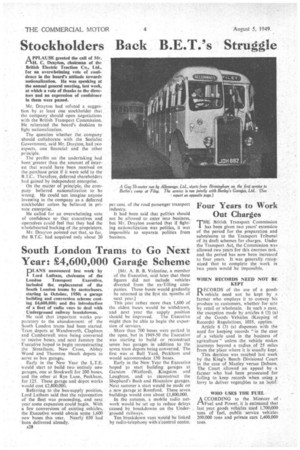Four Years to Work Out Charges
Page 30

If you've noticed an error in this article please click here to report it so we can fix it.
THE British Transport Commission
has been given two years' extension of the period for the preparation and submission to the Transport Tribunal of its draft schemes for charges. Under the Transport Act, the Commission was allowed two'years for this onerous task.' and the period has now been increased to four years. It was generally recognized that to complete the work in two years would be impossible.
WI-IEN RECORDS NEED NOT BE
RECORDS of the use of a goods vehicle need not be kept by a farther who employs it to convey his produce to, customers, whether for sale by retail or wholesale. In .such a case, the exception made by articles 6 (3) fa) of the Goods Vehicles (Keeping of Records) Regulations, 1035, applies.
Article 6 (3) (a) dispenses with the need for keeping records "in the case of a vehicle used in the business of agriculture" unless the vehicle makes journeys beyond a radius of 25 miles from the place where it is usually kept.
This decision was reached last week by the King's Bench Divisional Court in the case of Manley versus Dabson. The Court allowed an appeal by a farmer who had been prosecuted for failing to keep records when using a lorry to deliver vegetables to an hotel.
WHO USES THE FUEL
A CCORDING to the Minister of Plfuel and Power, it is estimated that last year goods vehicles used 1.700,000• tons of fuel, public service veh'cles 200,000 tons and private cars 1,400,000 tons
























































































